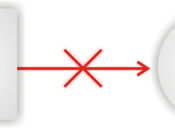First let us begin by defining the words manipulative and unethical. As defined by http://dictionary.reference.com/, manipulative is to influence or manage shrewdly or deviously, and unethical can be defined as not conforming to approved standards of social or professional behavior. According to our textbook, persuasion is the attempt to change someone's attitudes, beliefs or actions. (Page 265 Para. 1) This does not mean that it has to be done in a dishonest or devious manner. Persuasion can be straightforward and informative, depending on the person presenting the information. It does not always have to be manipulative and unethical, but can.
Politicians are the first people that come to mind when I think of the word persuasion. Politicians are able to sell themselves and their ideas to voters, and sometimes at any cost. Politicians acquire the support of the general public by carefully preying on the positive ideas of what the public thinks should be done in its favor.
They use specific information pertaining to each group to win that group over. This I feel is unethical. Sometimes the information is not completely accurate or used simply "to get a vote." Car dealerships are another with a bad name on persuasion. Withholding information about the vehicle from the consumer is considered unethical.
However there are examples of good persuasion. For example, when I was deciding on schools, I was unsure about the online education courses. I had never had any experience with it nor knew anyone else who had. So I requested information. After an advisor contacted me and gave me the details I was ready to start.
The advisor basically was persuading me to take action and succeeded simply by providing me with accurate information. Another example is those who raise money for special needs. The...


